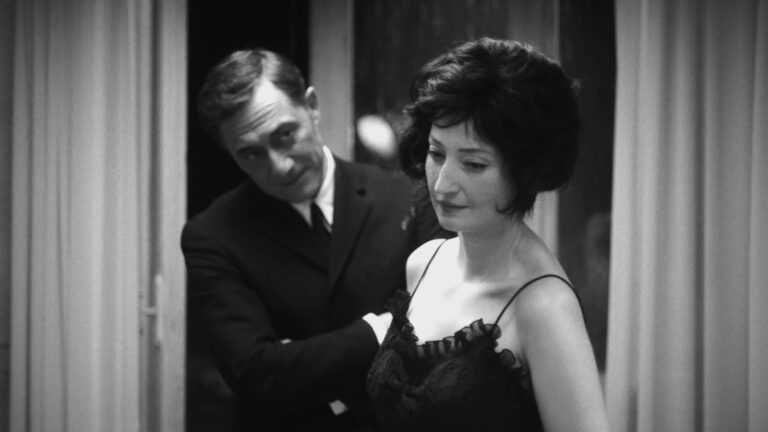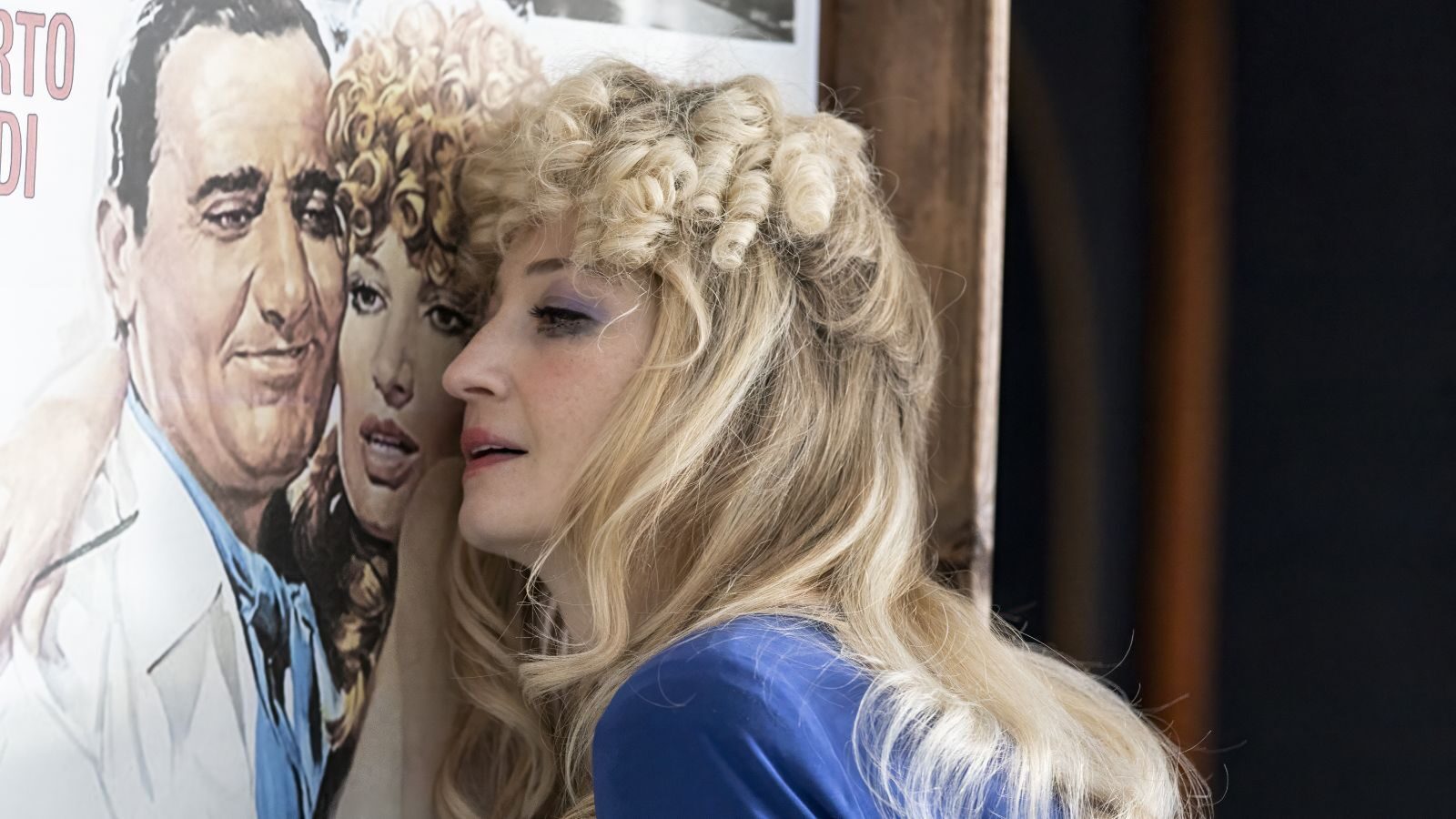
Director Roberta Torre, inscribes on reel her love letter towards the esteemed Italian actress Monica Vitti. However, In The Mirror is not a biopic, it’s much better. It portrays how the power of cinema may be therapeutic to someone who is struggling with a neurological disorder.
Monica (Alba Rohrwacher) suffers from the Korsakoff syndrome that affects memory, in terms of amnesia while at the same time creating false memories. This premise provides an eerie parallel with Monica Vitti’s last years when she was affected by Lewy body dementia, that causes a decline in mental abilities similar to Alzheimer’s disease. The Monica in Roberta Torre’s film gradually gets swept into a state of confusion as she watches the films of Michelangelo Antonioni’s muse. Meanwhile, her husband Edoardo (Filippo Timi), indulges in her visions whilst they reside in their house by the sea. In the interim, the house they have in Rome will have to go on sale to pay off the debt of a legal case that ended badly. In all of this cinema comes to the rescue to alleviate the woman’s condition, as Monica acquires a new memory re-enacting all the women that Vitti brought to the silver screen.
The narrative pairs the vulnerability of Vitti’s characters with the frailty of a woman who finds a means of escape through all of the actress’ roles, whether they belonged to drama or comedy, whether they demonstrated strength or weakness. Thus, Vitti and Rohrwacher evoke flashes of: La Notte (The Night) with Marcello Matroianni; A mezzanotte va la ronda del piacere (The Immortal Bachelor) with Giancarlo Giannini; L’Eclisse (The Eclipse) with Alain Delon; Polvere di stelle (Stardust) with Alberto Sordi; and many more. The make-believe effect is achieved by the exceptional work of costume designer Massimo Cantini Parrini — who recreated the clothes that Vitti wore in her movies — as well as the art production by Anna Forletta and Flaviano Barbarisi, who managed to recreate a bourgeois interior design from the Sixties. The look of the film is dreamy and evocative thanks to Stefano Salemme’s cinematography, whilst the narrative pace is given the proper rhythm by Paola Freddi’s editing and the music score by Shigeru Umebayashi — who is none other than the composer for In The Mood For Love. As regards the actors: Alba Rohrwacher is fitting for this role, since her features have an uncanny resemblance to the ones of Monica Vitti, and Filippo Timi — playing her screen-husband — has a similitude to Giancarlo Giannini, who worked with the legendary movie star.

Roberta Torre’s filmography has always been characterised by a sensitivity that she would express by thinking outside of the box. The screenwriter-director who grew up in Milan — where she trained herself in dramaturgy at the Paolo Grassi School of Dramatic Art, the Civic School of Cinema Luchino Visconti, as well as Ermanno Olmi’s Ipotesi Cinema — eventually moved south to expand her craft. During the Nineties she settled in Sicily and it is in Palermo where, for a decade, she unleashed her cinematic creativity. Her film Tano da morire (To Die for Tano), presented at the 54th Venice International Film Festival won several accolades, including the David di Donatello (the Italian Academy Award) and the Nastro d’Argento (the Award from the Italian National Syndicate of Film Journalists). Through the years Roberta Torre has been praised across the festival circuit in Cannes, Sundance and at the Tokyo International Film Festival.
In The Mirror is Torre’s tribute to Monica Vitti, that once again is expressed through her style that goes beyond conventions, starting from the Italian title. Mi fanno male i capelli is the original name of the film, that would translate to “My hair hurts.” This is one of Monica Vitti’s famous lines from the film Il deserto rosso (Red Desert), that was awarded the Golden Lion at the Venice Film Festival in 1964.
Roberta Torre’s latest picture is currently part of Open Roads: New Italian Cinema, at Lincoln Center. The motion picture proves to be the gentle homage of a modern filmmaker, to an icon of film history who transcended stereotypes and was ahead of her time.
Final Grade: B
Check out more of Chiara’s articles.
Photos are Courtesy of Cinecittà

